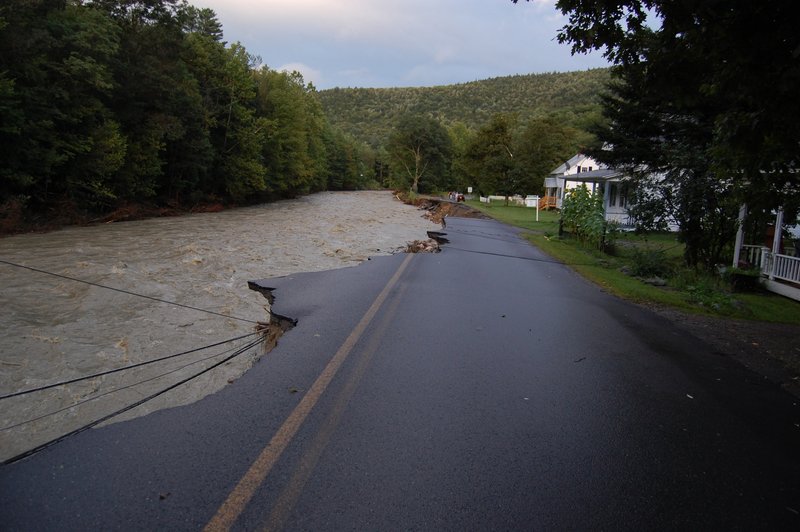Hell isn’t other people, it’s bureaucracy
In George Orwell’s 1984, “deviants,” any who questioned authority in any way, were brought back in line by being tortured by whatever means terrified them the most. The story’s hero, Winston Smith, is made to betray the woman he loves by being encaged with hungry rats. As a child, I figured that this must be what Hell would be like: to have the thing you hate and fear the most done to you every day for Eternity.
I’ve come to conclude that my personal hell might be much less dramatic than being overcome by rats or being chained to a rock like Prometheus to have my liver eaten by an eagle every day. My eternal hell, and I’m sure I’m not alone in this, would be to be endlessly on the phone trying to get customer service to resolve a simple problem.
I doubt if there’s anyone who hasn’t had this experience: Some screw-up has occurred: a large surcharge has been added for no apparent reason, a product has been delivered that you didn’t order, a reservation has been made and confirmed but isn’t fulfilled. After wading through the phone options and informational messages you don’t care about and perhaps being on hold for half an hour, maybe disconnected a couple of times, you finally get a human.
Once you get through, you do your best to calm yourself, to be polite, to realize that the person you’re talking to is just a working jill or joe like you are. You explain as calmly as you can what has happened and what you think would be a reasonable way to solve the problem. But you quickly realize it’s not going to work: The customer service rep has been trained to do certain things, has a computer that will allow them to do certain things, and what you’re quite reasonably requesting simply isn’t one of those things. No they can’t reverse the charge, no you can’t return the item for cancel your order, no they won’t reimburse you if you send the product back.
So you stay on the phone and argue. Perhaps you “demand to speak to a supervisor.” Sometimes you’re told there the supervisor “isn’t on the floor at the moment, would you like to call back?” You try to restrain your emotions when you get the supervisor who asks you to repeat everything you’ve just told the customer service rep. Sometimes the “supervisor” is just a smoother version of the person you started out with; sometimes the supervisor is a “heavy” who is just more brutal in telling you, no, it just doesn’t work the way it reasonably should.
Finally, you lose it. Maybe you use a swear word and get hung up on immediately. Maybe you raise your voice and are warned that you will be hung up on if you continue. Maybe you start to feel that you’re actually having the heart attack you’ve been telling these people for an hour now is what’s going to happen to you from trying to get them to understand your perspective. Maybe you’re the one who hangs up in disgust. Either way, you feel like crap. You feel stupid. Why did I get wrapped up in this? For what? It isn’t worth it.
You’re drained by the effort, with flashes of fury, and probably more than a little embarrassed by some of the things you’ve said in the course of the argument. And you’re exactly back where you started before you picked up the phone!
I figured this would be the most likely scenario for my personal hell: desperately trying to get customer service to resolve a legitimate problem in a reasonable manner. Eternally.
That was before I had to deal with governmental bureaucracy. A little background: I’m the chair of our local town council in a small town in southern Vermont. There’s no mayor and no county government, so little councils like these handle everything from whether a dog that bit a child should be euthanized to cell tower ordinances to creating and managing a budget of over a million dollars in taxpayer money. Tropical Storm Irene upped the ante: our town of 1700 people was hit with four and half million dollars in damage to the municipality alone (roads, bridges, and culverts). Some people’s homes were destroyed entirely, many faced severe hardship.
Small towns like ours obviously aren’t in a position to absorb expenses on this level and, this being an officially declared disaster, the state Public Assistance office and the federal government (FEMA) have to be turned to for the financial wherewithal to repair the damage.
In fairness, a lot of the process goes fairly smoothly. FEMA holds workshops on applying for aid, sends reps to help figure out how to complete the mountain of paperwork; the state expresses its concern and serves as a conduit between the municipality and FEMA. All goes reasonably well: Contractors are hired to re-build roads, culverts, and bridges; banks lend the money to the town to pay the contractors in anticipation of state and federal reimbursement to the town; eventually funds flow back to the town to pay the banks.
It all works fine…until it doesn’t: The state says that the repair must be done in such and such a way and FEMA says it won’t reimburse doing it that way. They’re locked in some kind of arm wrestle with each other. Or, a different example, the FEMA rep “helping the town” gives verbal approval for how to handle something, only to be replaced by a new FEMA rep who says what the first guy said is completely wrong. Long after work has been done and contractors have been paid, FEMA informs the town that paperwork the town didn’t know about at the time they were handling the emergency, must be provided or FEMA won’t reimburse or will even take money back from the town.
But the worst is the equivocation, the ability of bureaucrats at all levels to pass the buck, to refuse to make any commitment. Though FEMA reps will bang the table and say “You MUST do this and you MUST NOT do that,” it turns out they are neither “approving” nor “denying.” They are simply “interpreting the regulations.” They are not making a decision, they are informing you on how they believe some other bureaucrat will interpret the regulations months ahead and thousands of miles away.
And if, as has happened innumerable times, your own particular situation doesn’t exactly fit the cookie cutter of the regulations, if it’s slightly different from what’s obvious, then no one will commit to anything. A bridge is down and must be rebuilt. How should this be done? The regulations say it’s supposed to be built back to the way it was and at the lowest cost. But it turns out what’s least expensive and the best solution, isn’t what was there originally. What should the town do? No one will give a straightforward answer. Each caveats what they say in words like “the regulations require that…” …blah, blah, blah, but don’t answer the direct question. The state guys says what they “think FEMA will approve,” and FEMA says it can’t answer at all until it sees all the paperwork, at which time tens of thousands of dollars will already have been spent that the bank gave and the bank wants their money back, now!. And, oh yes, there are time limits on everything. Did you miss a deadline? Oops. Too bad. Now we can’t give you any money. Sorry. Missing a single deadline could cost a town hundreds of thousands of dollars.
If this were an isolated case, I wouldn’t write about it. It isn’t. The more money is at stake the more onerous the rules are and the less real guidance, let alone actual written approval, is given.
For the record, this has absolutely nothing to do with partisan politics. The faces of FEMA and the state agencies may change under Democratic vs. Republican administrations, but bureaucracy has its own logic and inertia that transcends party politics. Nor is this a rant against government spending. If there were no federal aid to disaster hit areas, we’d have no roads. No way to get from point A to point B.
We like to believe that bureaucracy is a term that applies only to the former soviet empire and the novels of Franz Kafka, when, in reality, the bureaucracy is as deeply as entrenched in our culture as in the most dystopian nightmares.
So perhaps when I am damned to hell for all I’ve done wrong in my life, I won’t find myself talking to customer service, I’ll be on the line with some government bureaucrat trying to get them to commit to telling me whether the my town’s new bridge should be have a deck made with reinforced concrete or with yellow and blue (no red) Lego blocks!













